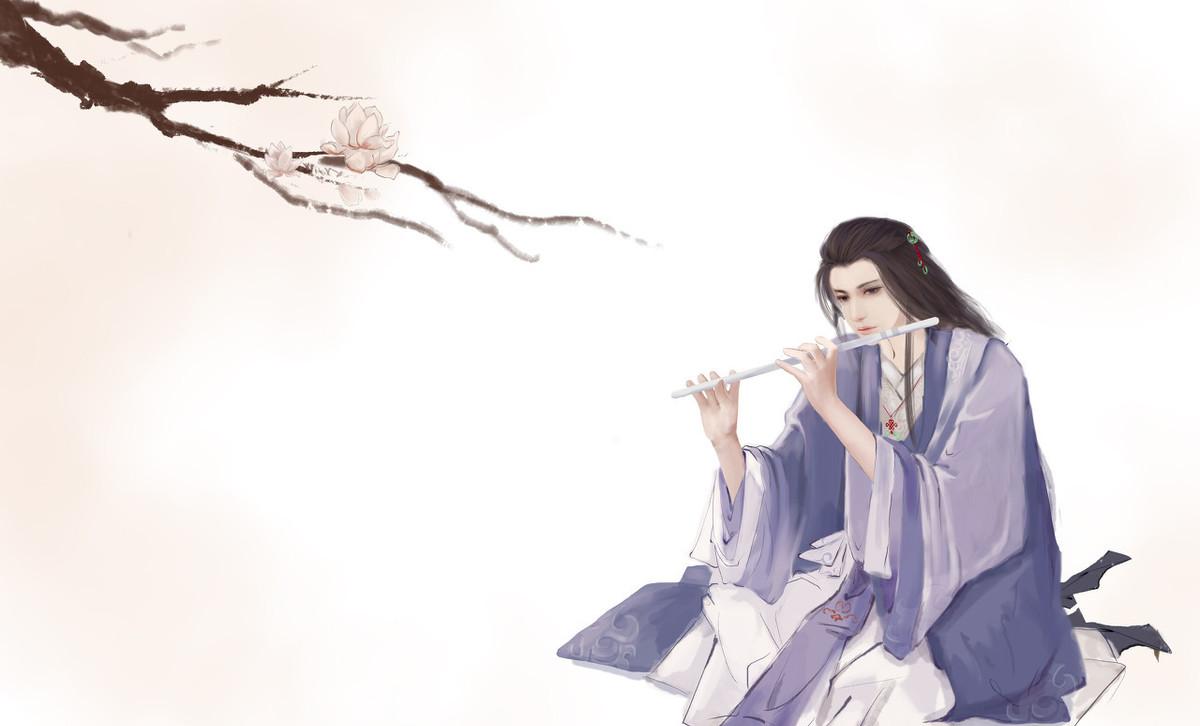In the poetry of the Sheng Tang Dynasty, Li Bai and Du Fu shine the most, and many poets other than him are roughly classified into two major schools according to the theme of creation and artistic style, one is the Biansai poetry school and the other is the landscape pastoral poetry school. The former is represented by Wang Changling, Gao Shi, Cen Shan, Wang Zhizhuo, etc.; the representative figures of the latter are Wang Wei and Meng Haoran, who are also called "Wang Meng".
In addition to "Wang Meng", there are also some poets in the Sheng Tang Landscape Pastoral Poetry School, but in modern times, most of them have famous passages and they are not very famous, such as Chang Jian, who wrote "The Zen Courtyard After the Broken Mountain Temple", which has a famous sentence "The winding path leads to the quiet place, and the Zen room is deep in flowers and trees." The mountain light is pleasant to birds, and the pond shadow is empty of people's hearts"; for example, Zu Yong, who wrote "The End of the South Mountain Looks at the Remaining Snow", "The end of the South Yin Ridge Show, the snow floats in the clouds." The forest shows a bright color, and the city increases the twilight cold. ”

The poet we want to mention today is also one of the more important representative poets of the Sheng Tang Landscape Pastoral Poetry School besides Wang Wei and Meng Haoran: Chu Guangxi.
Chu Guangxi is not very famous in modern times, but he has actually received a relatively high evaluation from some poetry critics in the past, and hu Yinglin's "Shi Xue (sǒu)" in the Ming Dynasty combines it with Wang Wei, Meng Haoran, and Wei Yingwu, believing that "Wang Meng Chu Wei, Qing idle and far away"; while in the Song Dynasty, Su Rui especially admired Chu Guangxi, believing that it was "like Tao Yuanming in height and like Wang Mojie in peace".
In the circle of friends of Sheng Tang poets, Chu Guangxi is good friends with Wang Wei, and his life trajectory is also very similar to Wang Wei. Both were considered to be teenagers and famous, and the Zhongjinshi were both around the age of 20 and embarked on a career path; and between 735 and 755, both lived a life of being both official and reclusive, and Chu Guangxi also lived in seclusion in Zhongnan Mountain; during the Anshi Rebellion, the two were also captured and forced to accept false posts.
The difference is that Wang Wei wrote a poem "Wen Rebellion Thief Ning Bi Chi Zuo Le" during the chaos, and later requested to cut the official bao brother because of his brother Wang Jin's meritorious service, so Wang Wei was able to avoid being degraded after the chaos; Chu Guangxi was demoted to Lingnan.
The main content of Chu Guangxi's poetry creation is landscape and pastoral poetry, and "Quan Tang Poems" collects more than 200 of his poems, of which more than half are landscape idyllic poems, many of which reveal their yearning for a reclusive life. Chu Guangxi does not have many famous articles, but there are also some small poems written in a beautiful mood, fresh and picturesque, such as "Fishing Bay": "Fishing in Green Bay in spring, spring deep apricot blossoms." The pond is clear and the water is shallow, and the lotus is moving and the fish are scattered. ”
Including the third of the "Four Songs of Jiangnan Song" shared today, it is also a typical work.
Gangnam Song Four · Three
Don Chu Guangxi
At dusk in the Yangtze River, we are invited to return to the head of the river.
Falling flowers, as intended, come and go in a light boat.
"Jiangnan Qu" is the old theme of Lefu, and the poets of the Tang Dynasty studied Lefu folk songs and used these old themes to create many poems with folk song characteristics. Chu Guangxi's four "Jiangnan Qu" group poems are one of the representatives. The third song shared today is the third.
This little poem is very simple, only 4 sentences and 20 words, but it depicts a very hazy and subtle love. In particular, the last two sentences are written very stunningly, using simple language to depict a particularly beautiful artistic conception: falling flowers come and go as intended.
In the evening, as the sun sets and the sunset falls quietly on the river, the day's work is over and young men and women row together to the ferry. There are peach blossoms scattered in the river, and with the flow of the oars, it seems to be flying up and down to chase the light boat.
The last two poems do not directly write about men and women laughing and chasing, but through a metaphorical image of falling flowers, so that the verses have a pun, through the falling flowers deliberately one by one to write the subtle psychology of young men and women, but also the reader into such a poetic realm. The poem reveals a fresh and fluent Jiangnan folk song style, and writes the pursuit of young men and women as subtle and euphemistic and beautiful.
Some versions of the last two sentences are "Falling flowers as intentional, coming and going from the boat to the stream", in contrast, I still prefer "falling flowers as intentional, come and go to the light boat". In addition to the falling flowers and light boats are more picturesque and the sound rhyme is more beautiful, the image of "light boats" itself also reveals the protagonist's very light and pleasant mentality, and the artistic conception is also more beautiful.